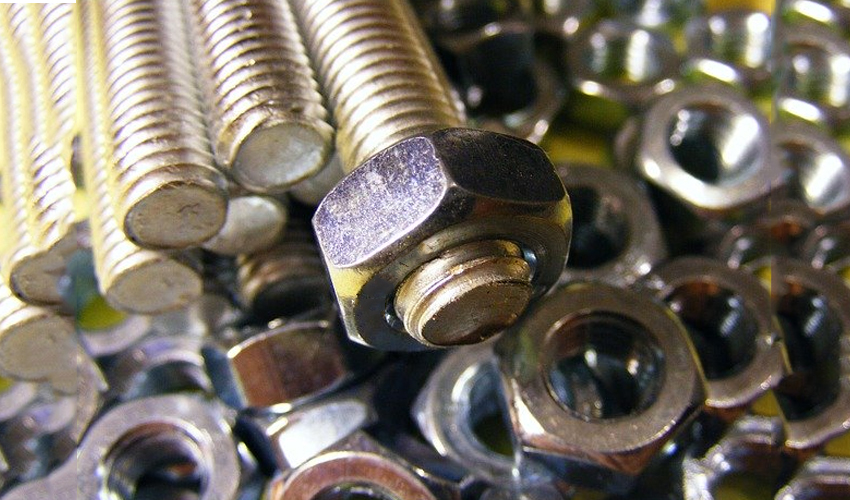What Is a Machine Screw?

Machines work because their components are held together by precision fasteners. And among the most common and widely used precision fasteners are machine screws. From simple appliances to industrial engines and machinery, most machines today have machine screws.
To better understand what a machine screw is and how it works, continue reading below.
An Overview of Machine Screws
A machine screw is a type of precision fastener that is designed to join two or more components. Unlike other precision fasteners, machine screws are unique because of their sizes, which can reach up to 0.75 inches in diameter. Though they can be smaller than that, they can't be anything larger.
Aside from having a diameter of 0.75 inches or smaller, a machine screw can be easily distinguished because of its uniform threading. What this means is that the helical ridges on the screw's exterior are of the same size from top to the bottom.
Machine screws also have a head that is connected to a fully-threaded shank. This shank holds the uniform exterior threading that allows the entire machine screw to be secured into a tapped hole.
And because machine screws are widely used in machines, these screws should be able to withstand strong vibrations and pressure. If the screw is made using weak materials, it may only crack and cause severe damage to the machine.
Machine screws can be made using different materials, such as stainless steel, titanium, bronze, aluminum alloy, and brass. Among the most popular ones are stainless steel, titanium, and brass machine screws.
Common Machine Screw Head Types
Machine screws have different head types, and their applications vary, too! Let's find out more about these head types below.
- Pan Head Screw - It is a machine screw with a flat, circular head. While it is designed for slotted screwdrivers, other tools can secure it. A pan head screw has a smooth edge for added safety and improved appeal. The common applications of pan head screws include automotive parts and machinery.
- Binder Head Screw - It has a thicker head and a deeper slot. Its head has a tilted exterior edge. The usual applications of this machine screw head type include binding material swatches and other massive manuals.
- Fillister Head Screw - This machine screw head type is characterized by a convex, flat top. Its head is similar to cheese and pan heads, while its height is a bit longer. Because of its unique, raised head design, surfaces are protected. It is commonly used in machine assemblies and other precision tools.
- Cheese Head Screw - It is characterized by a deep head with deep recess and comes with a flat disc top and bearing surface. The popular applications of this machine screw include automotive and electrical components, as well as appliances.
- Oval Head Screw - Also called the raised countersunk head screw, the oval head screw has a rounded top surface with a conical bearing surface. It is recommended for finished surfaces that require a flush fastening unit because of its aesthetic appeal. The common applications include construction projects where decorative finishes are a must.
Bolts Vs. Machine Screws
Machine screws may sometimes be confused with bolts. However, they are actually very different. Machine screws have this slotted head, while bolts have a hex-shaped head. So, for machine screws, you will need to use a screwdriver, like a flat-head screwdriver or a Philips head.
Bolts, on the contrary, need a hex socket for installation. To install a bolt, position the hex socket over the bolt's head. And then, start turning it.
In terms of size, both machine screws and bolts also differ from one another. Machine screws are generally smaller than other precision fasteners like bolts, whereas bolts come in different sizes.
Reasons to Use Machine Screws
Machine screws have a vast range of applications compared to other precision fasteners. That is because of their relatively small size, allowing for joining a multitude of components, surfaces, and objects.
Also, as mentioned above, machine screws are available in different materials, with stainless steel and brass as the most popular materials. They're generally strong and resistant to corrosion and rust.
Find Quality Machine Screws at Precision Fast Tech India
Regardless of the project or industry you're in, it is essential that you get the right types of precision fasteners for the job since your choice can affect the overall quality of the outcome. Since precision fasteners come in so many different types, it can be easy to choose the wrong type, especially if you don't know what you're doing. However, you can avoid all this by understanding your needs and then getting the right precision fastener for the job.
And if you are looking for a machine screw for your project, do not hesitate to reach out to the Precision Fast Tech India team. We have a wide range of machine screws available, such as pan head, fillister head, round head, button head, oval head, flat head, binding head, cheese head, and truss head.
Not sure about what machine screw best suits your project? Let our experts help!
